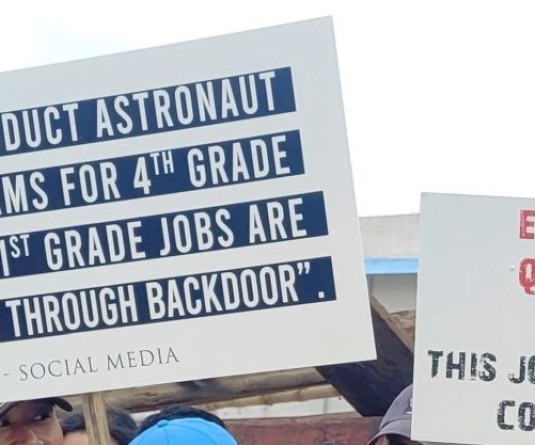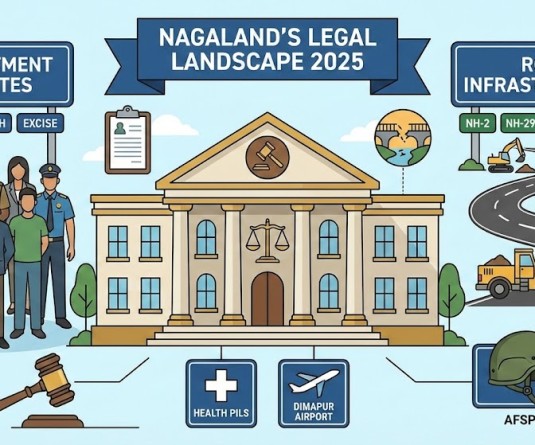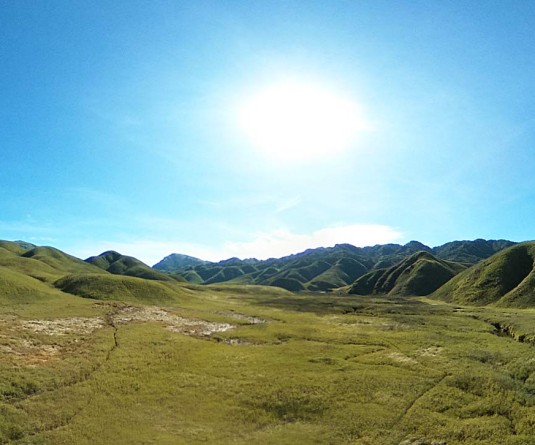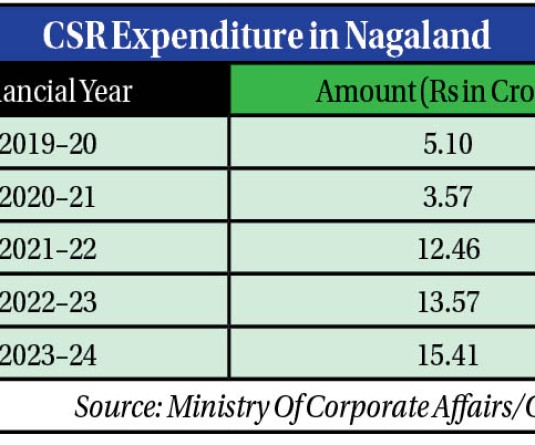Children at Badze Leshüki, an alternative learning space that is defying traditional education system and emphasising on experiential learning.
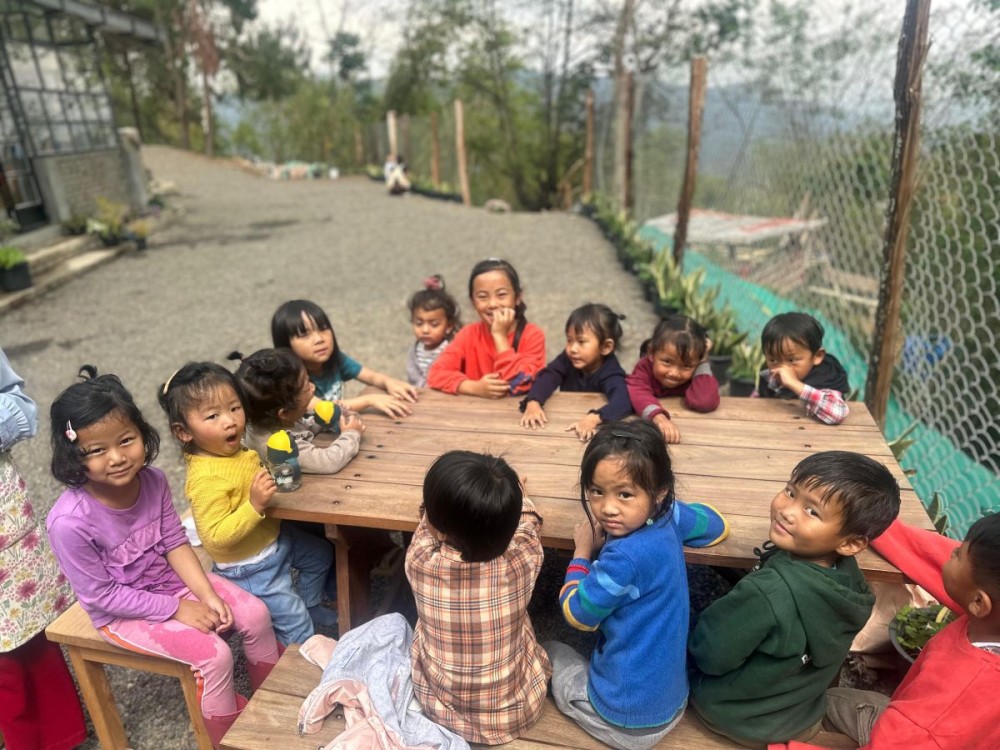
Vishü Rita Krocha
Kohima | August 13
5-year-old Cleo is able to tell why land is sliding in one area—because too much rain water is flowing into it due to a nullah up above that is blocked. And she knows this not because she read it in a book or memorised it as she is still learning to read but because they spoke about it when they swept the school driveway and cleared the drain.
Badze Leshüki, where she is enrolled in is no ordinary school. It does not have a typical classroom setting nor does it have a specific uniform requirement, but is grounded on the indigenous knowledge traditions of the Nagas and greatly focusses on experiential education.
Nestled amidst the lush green forests of Kohima, the very name of the school “Badze Leshüki” is derived from the Tenyidie language ideally capturing the essence of community life and knowledge exchange in the Naga culture. Badze could mean “seating spaces where people sit to chat, to rest and recuperate” while Leshüki literally translates to school.
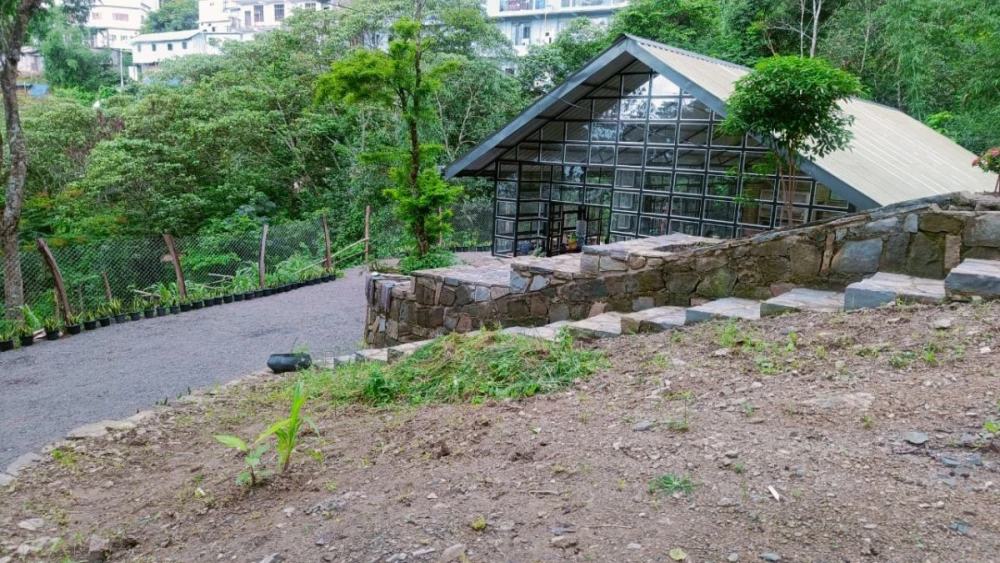
At a time when most children grow up learning in an environment where traces of the indigenous Naga way of life are barely visible, Badze Leshüki is a ground-breaking initiative towards reclaiming the Naga identity. Founded by poet, educator & culture conservationist, T. Keditsu, whose work on indigenous culture spans over a decade, Badze is an organic outcome of her work in this regard based on her strong belief in creating a new paradigm of learning where children can learn without cultural alienation.
Cleo is the youngest daughter of T Keditsu, who is among the 15 children aged between 2 and 7 currently enrolled in Badze that initially started with 6 students. “For one, she knows her trees and plants now. Forget my other children, it is even a marvel for me, her mother with a PhD who is less familiar with plants and flowers than her,” she articulates.
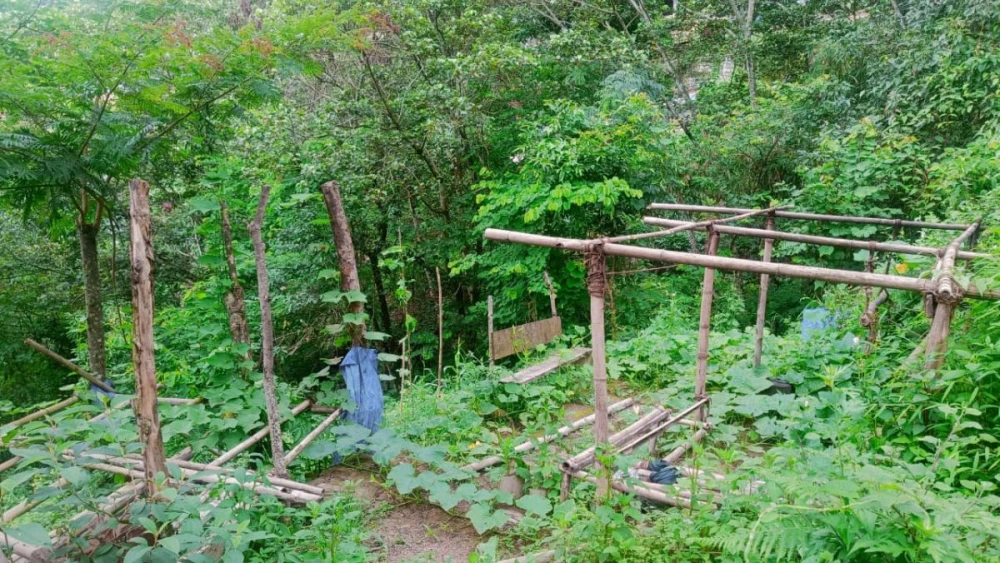
“Surely, children who have this awareness and relationship with nature will think many times before clearing entire hillsides in the name of development,” she remarks.
‘Adding new layers of skills and concepts as children progress in age’
While many people assume that the lessons at Badze are only fun and games since the kids are engaged in play-based learning, she highlights that, “here in Nagaland too, STEM enjoys a higher prestige than the humanities and arts. With our focus on transdisciplinary learning, we are working to change mindsets that still think in terms of silos.”
Further expounding on this, she states that, “of biology as something apart from art, for example. We have a culinary station in our learning space. Here the children prepare and cook their own meals every day.” In the process, she states that “they learn to count, measure, they learn to match proportions, they observe (through a borosilicate pot) how convection works.”
The children also plant and tend to their little jhum patch where they are learning about how rice is grown. “The beauty of project-based learning is that we are able to add new layers of skills and concepts as children progress in age”, she professes.
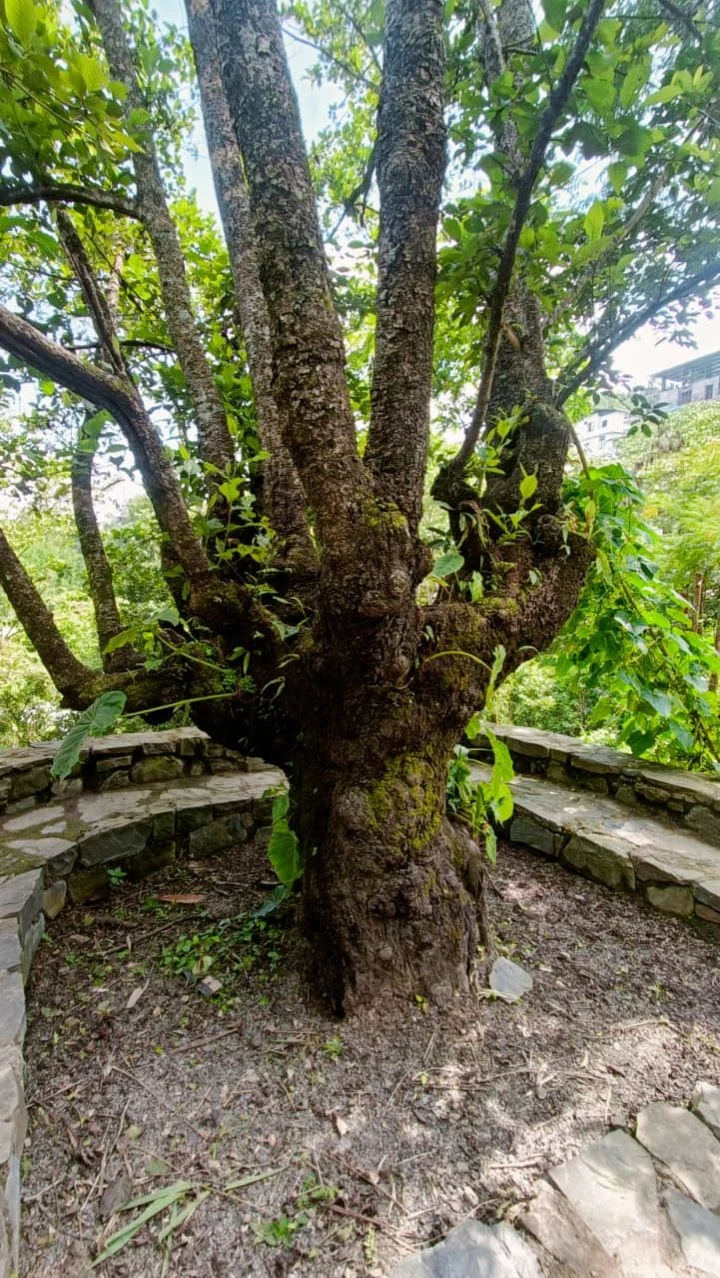
At Badze Leshüki, the children begin their mornings by meditating with nature and as the day progresses, they are learning to tend to their flower beds through the process of deadheading, weeding and watering; they also tend to their vegetable patch and jhum field, weeding, harvesting and clearing.
Besides these outdoor activities, the children are learning to sweep, mop and dust their learning spaces as well as the toilets. They cook their own meals and do their own dishes and rely on organic, seasonal vegetarian local produce as a no-industrially processed sugar or food campus.
Keditsu also highlights that every meal cooked is a lesson in the vegetables featured that day, the rice or grain even as she talks about the local rice varieties as well as foxtail millet, jobs tears, and indigenous condiments.
“The children learn about plants, nutritional value, folklore associated with some food items or dishes, flavours, preparation methods while plucking, cleaning, washing and cooking their daily meal,” she adds to this.
Given the unique and unfamiliar approach of the school, she says, “It wasn’t like we had parents breaking down the gates for admissions.”
“Definitely, the school has still not become viable in the business sense,” she highlights. However, in this regard, she expresses, “I am thankful to my parents for their support, without which we would not be able to pay the teachers what they deserve.”
While she is also very sure that they would like to upgrade to middle school, she admits that, “but we’re quite clueless as to how to fund this expansion while also maintaining a proportionate student intake that will not adversely tax the natural environment of the campus.”
Badze Leshüki currently has an area with a range of Pikler climbing frames and slides; a library of books curated for the current age groups; a cottage situated a short walk down from the main learning space.
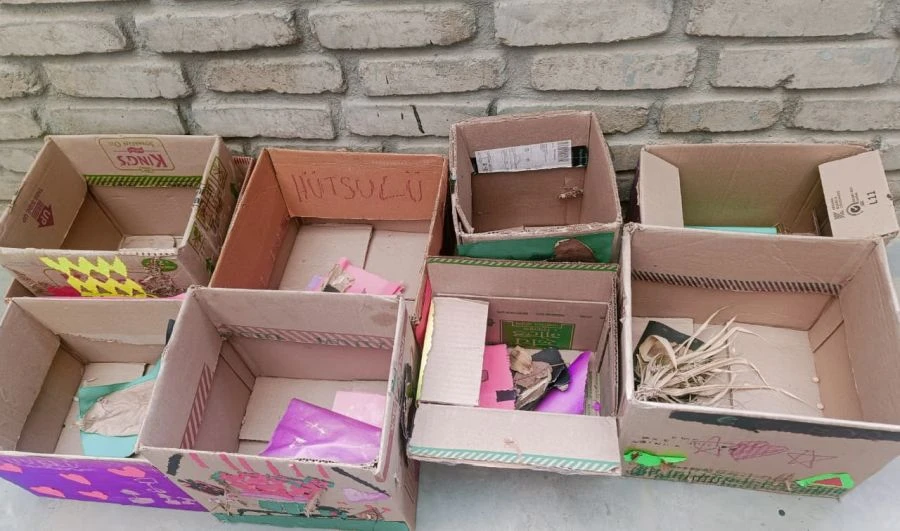
The cottage is made entirely out of old doors, window frames and leftover wood apart from the dyna roof and the glass, embodying the school philosophy of reuse and recycle. In this cottage, she further highlights that, “we have a Reggio Emilia inspired Atelier stocked with wet, dry art supplies, crafting materials, yarn for knitting, crocheting, sewing and we are also eagerly awaiting delivery of our loin loom warming and weaving frames.”
‘Rooted Reform’
Badze Leshüki which has ‘Rooted Reform’ as its motto also deeply aligns with the New Education Policy (NEP) 2020. While “the core project of NEP 2020 is speak back to and step away from the legacy of colonial education that succeeded in its intent to create a class of accomplished subordinates”, Keditsu says that, “it is an empowering document that returns to the principles of this country’s indigenous knowledge systems – systems that grew organically, from the ground up.”
In terms of assessing the students, Badze currently focusses more on formative assessments rather than summative ones since they only have foundational stage students at the moment. This is also drawn from the learning outcomes outlined in the National Curriculum Framework for Foundational Stage 2023.
In her words, “we love that this document distributes competencies across the age range (3-8) rather than allotting specific ones for different age groups. Taking courage from this, we are able to assess each child on their own terms and pace. We are also not teaching or making children LKG and below write – letters or numbers – though this is a common practice here and has raised a few eyebrows in the community.”
Since learning at Badze is self-directed, she also says that “each child has a box of pride into which he/she can deposit work, or items they feel proud of, this is part of the ‘assessment’, speaking to them about why they have put it in. We shy away from using the word or ‘disciplining’ the children.”
Badze currently has four teachers including the head teacher, who has a PG diploma in Early Childhood Care and Education, a Montessori trained teacher while one has an MSc in Anthropology and the other with an MA in Political Science.
“Getting this school running has been as much about first finding people who are willing to unlearn and work out of their comfort zones as it has been about creating novel learning experiences for our students,” Keditsu says in this regard.
The teachers have been and continue to be put through a very intensive unschooling where they are encouraged to assess their own education critically and to develop novel strategies for their own students from a different paradigm.


